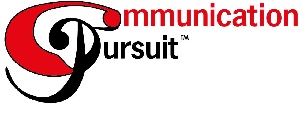Quick tips to improve spelling at work
Our society puts a lot of value in words. Words are our basic building blocks to convey our messages, our emotions, our needs and wants.
We can choose which words and in what order to use them in many ways, such as to write legalese, plain language, song lyrics, poetry, movie scripts, a political speech, legislation, sales copy for a business purpose, how to communicate with work colleagues and how to discipline our children.
As a result, every word you choose to use and how you use those words has an impact, whether that impact and reaction is good, converts to sales, makes them vote for you and your cause, is bad or indifferent.
If you are writing persuasive copy for a business purpose, then you’ll want to avoid distractions such as spelling mistakes and grammatical errors, sometimes called typos. It’s important that when you choose to use a word, it has correct spelling to convey the most accurate meaning.
Or in other words, write using the right spelling. As an Editor, you’d expect me to say this and encourage you to be diligent with your spelling, however here’s why I say it so emphatically.
Getting the spelling right in a document sent to customers conveys: trust in your brand, both personal brand and the organisation you represent; trust in your message; trust in your ability to deliver; and trust in your attention to detail. If there’s a spelling error, as the customer reads they may instantly lose all sense of what they have just read, and just remember the typo. Queue the typo story that just came to mind as you may have had personal experience like this as a reader and customer yourself.
Correct spelling saves you and your organisation time and resources due to miscommunication and keeps the focus on increased sales, which was probably the aim of the customer communication in the first place. So the question now is – Can you afford not to be diligent about your word choices and spelling?
Here are some quick tips to help improve your spelling.
1) Read anything and everything. Reading different types of information increases the possibility of discovering new words and opens your mind to new ways to express ideas.
2) Keep a spelling journal just for you. When you see a new word, write the word down in your spelling journal and the sentence where the word was used. Writing the sentence helps you to remember the context in which the word can be used. When you find the meaning of the new word, write the meaning down too.
3) If typing, use the spellcheck function on your computer as a starting point only. The purpose is to pick up any obvious simplistic errors. If the word ‘the’ is shown as ‘te’, spellcheck will find this error and you can approve the change without question.
4) Choose a preferred dictionary. If your organisation chooses one dictionary as the go-to resource for spelling checks, then it is one way to achieve brand consistency, whether your customer reads the organisation’s letter, email, brochure, website or instruction manual. Depending on your primary audience: in Australia, the Macquarie Dictionary; in England, the Oxford Dictionary; in the USA, the Merriam-Webster Dictionary; in Canada, the Canadian Oxford Dictionary. For Australia, the Macquarie Dictionary is preferred as it includes uniquely Australian words, terms, expressions and concepts. Free online dictionaries can be okay for quick spelling checks, however it’s important to remember that many are US-based.
5) If you are on the go and are unsure of how to spell a word or not quite sure if you have the right word for the meaning you intend, go to Google and type in ‘definition’, followed by the word you are trying to spell, eg “definition principal”. Definitions will appear in the results without having to click on multiple sites. Preferred online dictionaries for a quick check are the Oxford Dictionary or Cambridge English Dictionary. For example, ‘principle’ is a fundamental belief and ‘principal’ is the term for money or the ‘first in order of importance’ reference, such as the head of a school.
6) When you are checking something you have written, read through the document out loud to yourself. Reading out loud forces you to read slowly and hearing your external voice turns you into a reader instead of a writer. If you are in a big office, perhaps go to a meeting room. If you work from home, enjoy your pet’s puzzled expressions as you tell them all about your business.
7) Imagine that you have to explain this document to your parent or your neighbour with poor English. Your eyes instantly become discerning as you are representing someone else.
8) Remember to respect the original spelling of proper nouns and proper names. For example, government references such as: in Australia, Australian Labor Party (ALP), Department of Defence; in England, Labour Party, Ministry of Defence; in the USA, Department of Defense, Department of Labor, National Center for Immunization and Respiratory Diseases.
9) If the document is intended for many customers or has high implications that it must be right, consider hiring a professional proofreader or editor who can review your document and provide personal coaching for you.
In my experience as an Editor, I have noticed that more often than not, people have a mental blank on the spelling of just a few words and trip over the same words again and again, and because of that they assume that they are bad at spelling overall. Acknowledge yourself for what you do know already and build on that expertise using the tips above. May you spell well with confidence.
